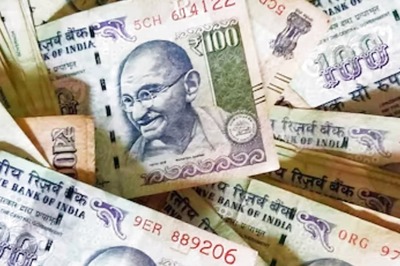
views
Berlin: Chancellor Angela Merkel is expected to sail to victory in Germany's general elections on Sunday but her win is likely to be clouded by the entry of an Islamophobic hard-right party in parliament and prospects of tough coalition talks.
Here are the first takeaways from the election campaign and the looming challenges ahead.
Mixed victory
Merkel is widely projected to win her fourth term, putting her on track to match the post-war record 16 years in office held by Helmut Kohl.
But the score that her Christian Democratic Union ends up with could be a dampener as it is projected to fall short of the 40-percent minimum that it has set as a target.
Opinion polls currently put it at 36 percent, close to the 35.1 percent it scored in 1998 when Kohl lost power and ushered in a SPD-led coalition.
Such a low score risks emboldening the voices of dissenters within her party and her more right-leaning Bavarian allies the CSU.
It would also complicate talks towards forming the next coalition.
Hard-right party arrives
The nationalist Alternative for Germany (AfD) party is expected to cross the five-percent hurdle, marking the first time such an openly Islamophobic and anti-immigration hard-right party is entering parliament after World War II.
In an editorial headlined "Merkel, the mother of the AfD", Spiegel Online columnist Jakob Augstein said that she should be voted out simply for failing to stop "the Nazis from entering the Bundestag" on her watch.
The AfD is currently credited with a little more than 10 percent in the polls and hopes to win seats for around 60 deputies.
While the far-right has been part of Europe's political landscape for years, the presence of a nationalist hard-right party with candidates calling for Germany to stop atoning for its role in World War II smashes a taboo in the country.
All mainstream parties have ruled out working with the Islamophobic AfD, with Foreign Minister Sigmar Gabriel calling its leaders "real Nazis".
One of its leading candidates, Alexander Gauland, has claimed that "Islamist rhetoric and violence and terror have roots in the Koran and in the teachings of Islam".
Which government?
Merkel and her conservative alliance are unlikely to gain an outright majority to rule alone, and her options for a future coalition are more complicated than thought.
The most straightforward and stable option would be renewing the lease on the current right-left "grand coalition", with the Social Democratic Party as the junior partner.
But the SPD is not keen on labouring in Merkel's shadow for another four years.
With polls currently suggesting that Germany's oldest party is headed for a record low score, fears are running high within the SPD that getting in bed with the conservatives again will cause it to further lose its working-class appeal.
The liberal Free Democrats (FDP), staging a comeback this year after four years in the political wilderness, are traditionally a good fit for Merkel's conservatives.
But opinion polls suggest that they would fall short of or narrowly reach a majority, meaning that such a coalition risks instability.
Merkel could further expand the coalition to include the Greens.
But keeping cohesion between the right-flank of her party and Bavarian allies -- who are staunch defenders of the scandal-tainted automotive industry, and the environmental party calling for combustion motors to be phased out, would be only one of many tough issues to thrash out.
As such, no one should hold their breath for a coalition to emerge swiftly after the last votes are counted.
Negotiations for a new government are likely to drag on to year's end.
Which way forward?
The shape of the next coalition will determine how Germany relates to Europe and the world.
This year's election campaign has been largely devoid of international issues.
But Germany has been dubbed a beacon of stability in a world buffeted by Donald Trump's election in the United States, Britain's decision to quit the European Union, and increasing friction within the EU over political tensions in Hungary and Poland.
As such, it is being asked to shoulder more international responsibilities, including through greater military engagement in the world's trouble spots.
"Germany is finding itself confronted with changes from elsewhere, and the geopolitical upheavals run counter to its traditional attraction to the east and its attachment to an alliance with the United States. It's a brutal change," said Jean-Dominique Giuliani, president of the Brussels-based Robert Schuman Foundation.
If a renewed grand coalition takes power, Germany would be more open to ambitious reforms in Europe, but more reticent to spending more on the military as demanded by Trump.
But in case of an alliance with the FDP, the reverse would be true.




















Comments
0 comment